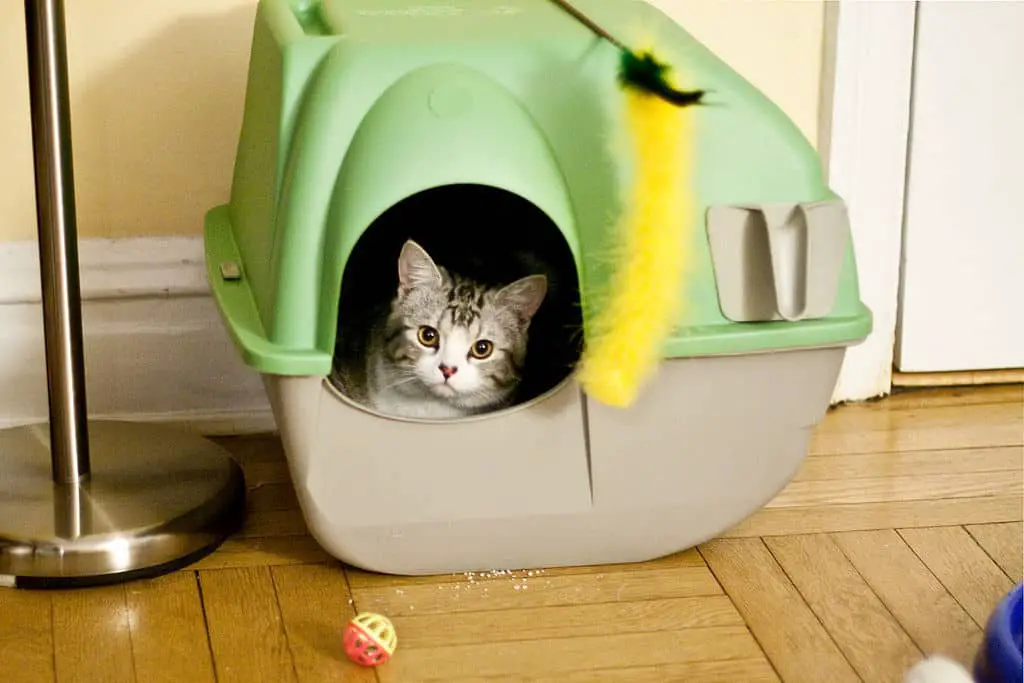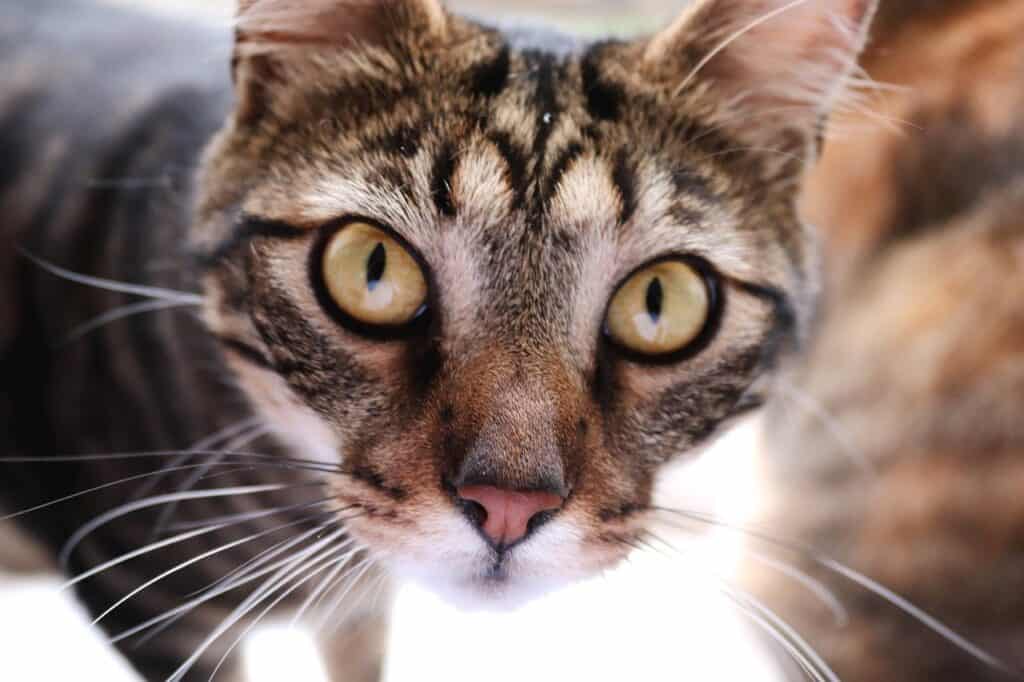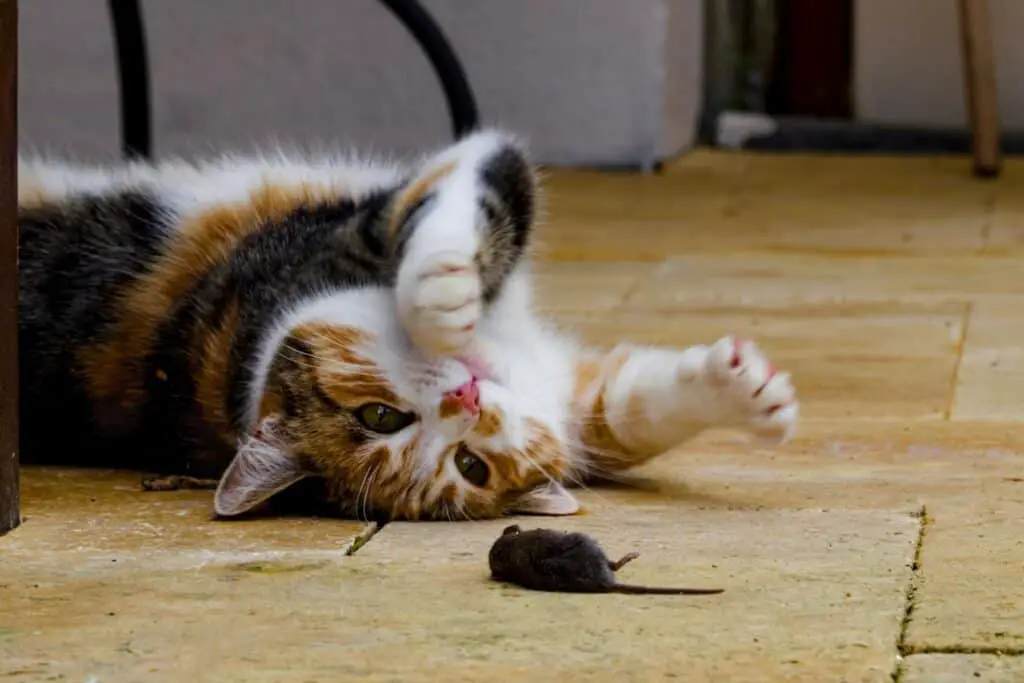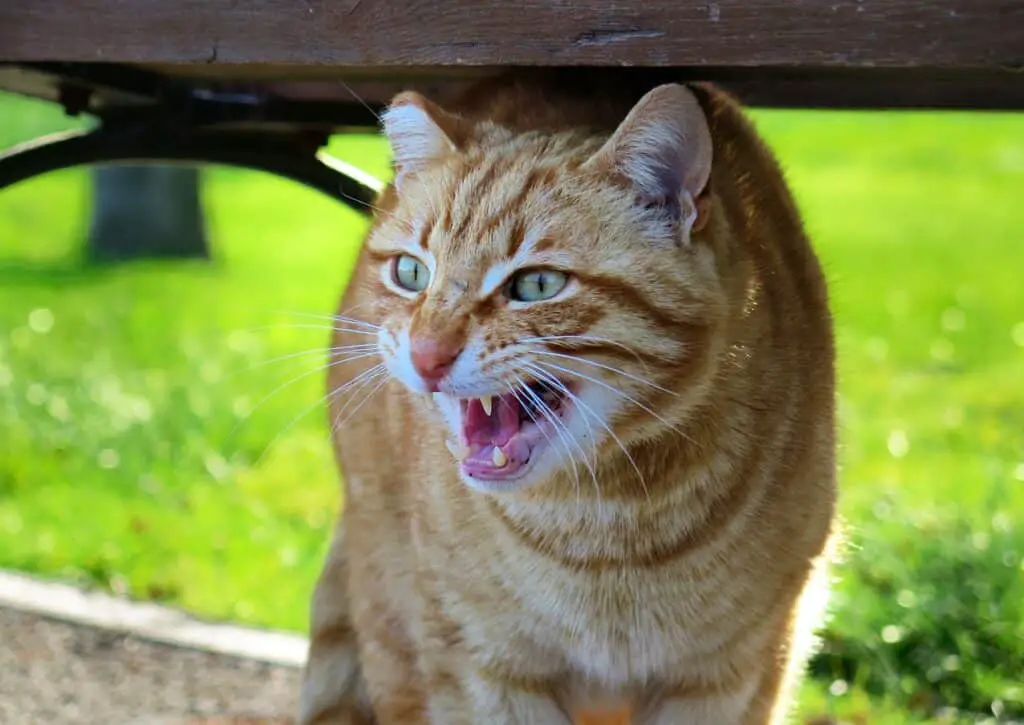Cats bury their poop, and dogs don’t. Did you ever wonder why cats do this, or did you think this is just something that cats do? There is a very good reason why cats bury their droppings.
We often need to look at how cats would live in the wild to understand the behavior we see, even with our domesticated cats.
So, why do cats bury their poop?
Cats bury their poop to submit to their larger counterparts. In the wild, cats use urine and feces to mark their territory. The dominant cat in the area will leave their feces out in the open for that reason. Smaller cats bury their poop to hide their scent and not to challenge their larger counterparts.
Who started it?
Cat excrement is rich in pheromones, and while all cat-pee and poop may smell the same to us, cats can recognize specific chemical scent markers to help them identify who’s poop it is.
Since the dawn of time, cats have used scent to mark their belongings and territory. They do this by defecating in specific spots and spreading their scent from pheromone glands in their cheeks, chin, and at the base of their ears.
In the wild, big cats like lions, tigers, cheetahs, and panthers compete for territory, and pheromones play an important role in conquering and defending territory.
Whenever settling down on an unclaimed piece of land, the dominant cat in any area will leave their poop out in the open. By doing so, they’re basically telling other cats that this territory belongs to them.
Smaller cats passing through are careful not to pick a fight or upset the dominant cat, and they will go out of their way to hide their scent.
But, if you gotta go, you gotta go. So, in that case, smaller cats will bury their poop in an attempt to hide their scent and to make it clear that they are not challenging the dominant cat in that area.
Other reasons why cats may hide their droppings
Another reason cats have learned to bury their poop is to cover their tracks and not attract unwanted attention. For example, when they’re out hunting or because they don’t want to give away the location of their nest of kittens and risk it being found by predators or wild animals.
Why does my cat bury their poop when using the litter box?
We discussed above why cats bury their poop for survival in the wild. You might ask yourself why your cat still does this when pooping safely at home in their litter box.
That’s a great question.
Many quirks in cat behavior have their origins in deep-rooted instincts that stem from when cats used to live in the wild exclusively.
Examples of this are how they communicate with each other, the way they choose a place to sleep, and indeed, the way they poop.
Apart from not challenging big cats or giving away their position, domestic cats also bury their droppings out of respect to you. They recognize you as the pack leader, and so you are, in a way, the dominant cat/person.
Cats who don’t accept their owners as their leaders and see themselves as the household’s dominant family member will leave their poop out in the open to send a message.
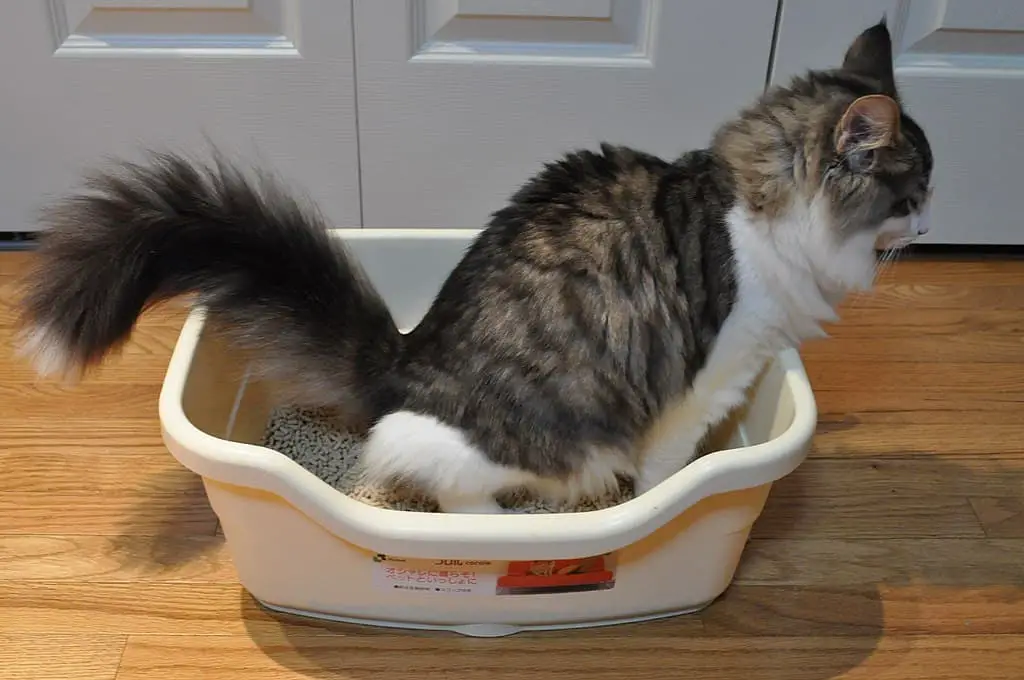
What if your cat does not bury their poop? – What to do about it
Most cats bury their droppings because that is what their instinct tells them to do. Mother cats teach their kittens from a young age how to do it.
There might be reasons why cats decide not to bury their droppings. When outside, this is usually not something you’d be bothered by unless you find a smelly one nearby in your garden.
Let’s look at why your cat might not be hiding its excrements. The most common reasons for this are below:
Stress or fear
If a cat does not feel comfortable or relaxed, it doesn’t take the time to discard its excrements properly. They will hurry and skip burying their droppings because they don’t feel at ease.
Make sure your cat feels comfortable using the bathroom. Try to eliminate any causes of stress in your cat’s life.
Problems with the litter box
Your cat should feel comfortable using its litter box. Compare to how you would like to use a toilet. If it’s very small or dirty, you’d want to get out of there as soon as possible. The same might be true for your cat.
Make sure the litter box is the right size for your cat. They should comfortably fit inside and have enough room to turn around. If you have a big cat and the box is too low, you can try using one with an open top.
Also, clean the litter box regularly. Cats hate a dirty litter box and will eventually refuse to use it at all. We would advise cleaning it once every two days, or more often if required.
Another thing might be a problem with the type of litter itself. Try testing different kinds and different brands of litter. Cats can be pretty particular in what litter they like, and something that one cat likes might be something another hates.
Their upbringing failed
It’s uncommon, but it could be due to a lack of training by their mother. Sometimes kittens are removed from their nest at a young age and have, therefore, not learned from their mother to bury their waste.
In that case, they might not have learned to bury their poop from their mum, and they depend on you as their cat-parent to teach them.
Your cat is the dominant member of the household
At least, that’s what it may think. Just like with the dominant cat in the wild, smaller cats bury their droppings out of respect and to not challenge the dominant cat in the territory.
Usually, when living in a household, cats understand that their owners are the dominant family members, and therefore, they will bury their poop out of respect for you.
Some cats, however, think that this doesn’t apply to them. They believe that they need to act like the “alpha” in your family. In that case, they might need a little nudge off of their throne, and you could try to teach it to bury their poop, as explained below.
Your cat might have a medical condition
Finally, if your cat suddenly stops burying his waste, it might be because of a medical condition. Cats are very good at hiding pain, but this could hint that something is not right.
A common issue with cats are problems with the unary tract. Infections (females) or blockings (males) are quite common and can be painful. This may be the reason your cat doesn’t want to spend any extra time in their litter box.
If you suspect medical problems, speak with your vet and discuss your options.
How to teach your cat to bury their poop?
If you think that the cause of your kitty not burying its poop is a behavioral issue, you can invest some time in teaching your cat how to do this.
As with any teachings to a cat, consistency and repeating are key. Your cat can learn new things, but it will take time. Don’t get frustrated because it will have the opposite effect of what you’re trying to achieve.
At first, your cat might think it’s weird having you sit next to her while she’s using the bathroom and refuse to go at all. After a while, though, she will get used to it, and you can move on to the next step.
When she did a poop, gently use her paws to cover the litter when she’s done. Encourage her by speaking soothing words and motivate her with treats when she does cover it.You can also use clicker training to “capture” the right movements and slowly encourage her over time.
Need a good litter box?
Are you looking for the ideal litter box for your cat?
You can try your local pet shop and see if they have what you like. We usually like to start by looking at Amazon.
They have a rather large collection of different kinds of litter boxes, and we enjoy reading the reviews from other cat parents.Have a look here and see if there is something right for your cat.

